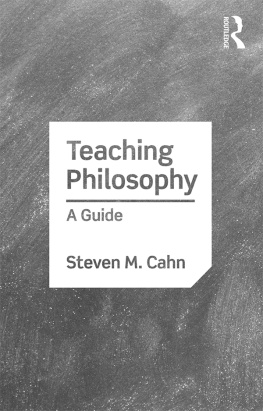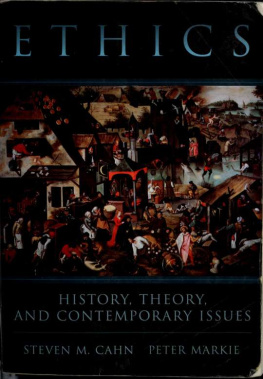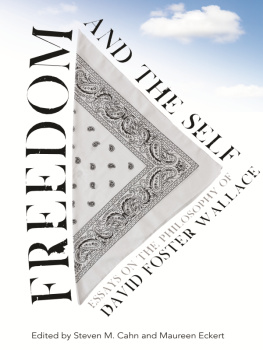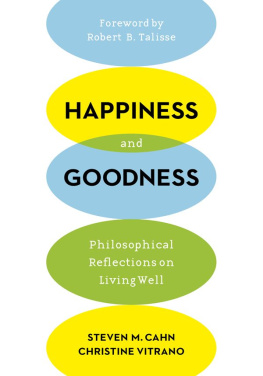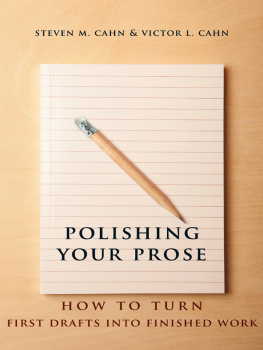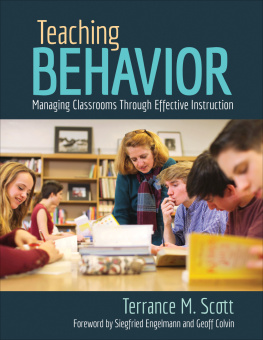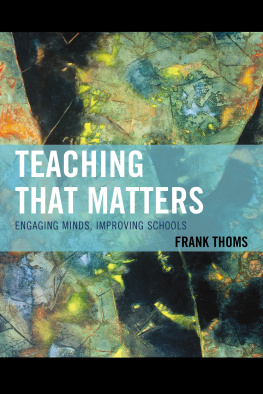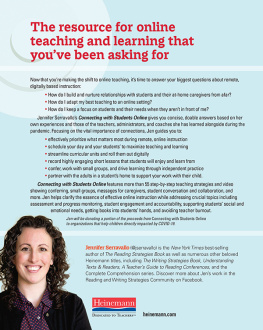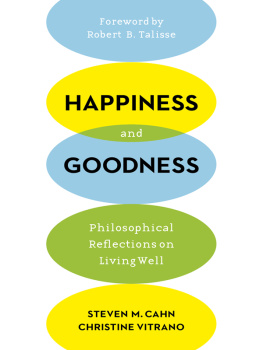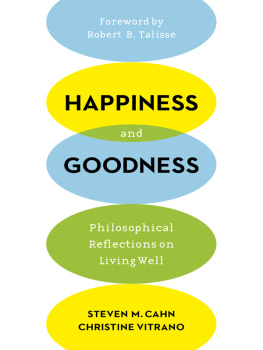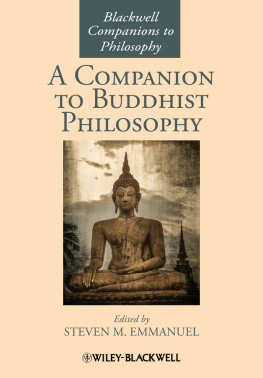First published 2018
by Routledge
711 Third Avenue, New York, NY 10017
and by Routledge
2 Park Square, Milton Park, Abingdon, Oxon, OX14 4RN
Routledge is an imprint of the Taylor & Francis Group, an informa business
2018 Taylor & Francis
The right of Steven M. Cahn to be identified as author of this work has been asserted by him in accordance with sections 77 and 78 of the Copyright, Designs and Patents Act 1988.
All rights reserved. No part of this book may be reprinted or reproduced or utilized in any form or by any electronic, mechanical, or other means, now known or hereafter invented, including photocopying and recording, or in any information storage or retrieval system, without permission in writing from the publishers.
Trademark notice: Product or corporate names may be trademarks or registered trademarks, and are used only for identification and explanation without intent to infringe.
Library of Congress Cataloging-in-Publication Data
Names: Cahn, Steven M., author.
Title: Teaching philosophy : a guide / Steven M. Cahn.
Description: 1 [edition]. | New York : Routledge, 2018. | Includes
bibliographical references.
Identifiers: LCCN 2017053088 | ISBN 9780815358558 (hardback) |
ISBN 9780815358565 (pbk.)
Subjects: LCSH: PhilosophyStudy and teaching.
Classification: LCC B52 .C325 2018 | DDC 107.1dc23
LC record available at https://lccn.loc.gov/2017053088
ISBN: 978-0-8153-5855-8 (hbk)
ISBN: 978-0-8153-5856-5 (pbk)
ISBN: 978-1-351-12219-1 (ebk)
Typeset in Joanna MT and Din
by Apex CoVantage, LLC

When I am asked my vocation and reply that I teach philosophy, some people respond that philosophy was their favorite subject in college, while others moan that philosophy was the course they hated most. I attribute these reactions not to the subject but to those who taught it. Some succeeded; others failed. In either case, the attitudes they engendered have lasted a lifetime.
While I presume that readers of this book share my view that philosophy is engrossing, we should recognize that not all agree. Just as some individuals may have little initial taste for the study of German grammar, medieval music, or organic chemistry, so others have a similar lack of attraction toward philosophy. Yet they may be enrolled in courses for which we are responsible. Can we meet the challenge of teaching philosophy so that our students, regardless of initial interest, come to understand and even enjoy the subject?
If you dont care about the answer to this question, then, however strong your philosophical abilities, youre unlikely to succeed as a teacher. And those with the bad luck to be your students may well find that they have wasted their time, money, and energy.
Furthermore, our democratic society will lose an opportunity to provide some of its citizens with a key component of liberal education: the ability to scrutinize the fundamental principles of thought and action. The path to such intellectual perspective lies in the study of those subtle analyses and grand visions that comprise philosophy. No other subject affords a stronger defense against intimidation by dogmatism while simultaneously providing a framework for the operation of intelligence.
What can be done to avoid pedagogical failure? For nearly a decade I offered doctoral students in the Philosophy Program at the City University of New York Graduate Center a fourteen-week, credit-bearing course titled Teaching Philosophy. The goal was to prepare new or inexperienced teachers to offer effective instruction for undergraduates. Through discussion of ethical obligations, preparation of sample syllabi and examinations, and numerous short teaching presentations by members of the class, dramatic results were achieved. Indeed, at the undergraduate institutions where the students went to teach, department chairs reported how well our students were performing and urged continued efforts to enhance the pedagogical skills of future instructors.
Sad to say, however, the majority of members in our doctoral program were focused entirely on increasing research productivity and believed time spent on improving teaching was wasted. Thus the course in teaching philosophy was abandoned, and as a result the undergraduate departmental chairs began to complain about our students inadequate performance in the classroom.
On occasion, I have been asked whether I could capture in writing the essence of that course, so that its central insights might be widely available. Such is my attempt here. I recognize, of course, that no book can replace intensive practice with the guidance of a committed instructor and insightful comments from fellow students. Nevertheless, I hope that the suggestions I offer will prove useful.
I should add that here is not the place to score points in philosophical or meta-philosophical debates nor express support for any particular curricular or technological innovations. After all, teachers who excel in the classroom can hold varying intellectual positions, approach the subject in different ways, cover a variety of materials, and employ a range of pedagogical techniques. My focus is not on exploring such variations but on identifying and analyzing the fundamental elements of effective teaching.
In what follows I draw in part on my published books and articles. All the material, however, has been reworked to provide a unified presentation.
Here are my sources:
Cahn, Steven M., The Eclipse of Excellence . Public Affairs Press, 1973. Reprinted by Wipf and Stock Publishers, 2004.
Education and the Democratic Ideal . Nelson-Hall Company, 1979. Reprinted by Wipf and Stock Publishers, 2004.
Saints and Scamps: Ethics in Academia . Rowman & Littlefield, 1986. Revised Edition, 1994. 25th Anniversary Edition, 2011.
Puzzles & Perplexities: Collected Essays . Rowman & Littlefield, 2002. Second Edition, Lexington Books, 2007.
From Student to Scholar: A Candid Guide to Becoming a Professor. Columbia University Press, 2008.
Contents
Guide
The impetus for this book came from a conversation with Robert Talisse, and I am grateful for his encouragement. Undoubtedly, my views on teaching philosophy have been influenced by my own teachers and colleagues. The former include Ernest Nagel, who originally encouraged me to pursue the study of philosophy, Justus Buchler, Arthur Danto, Charles Frankel, Sidney Morgenbesser, and especially my mentor, Richard Taylor. The latter include John OConnor, James Rachels, Philip Kitcher, Patricia Kitcher, William Mann, George Sher, and David Rosenthal.
I am grateful to my editor Andrew Beck for his support and guidance, and to the staff at Routledge for assistance throughout production. My brother, Victor L. Cahn, Professor Emeritus of English at Skidmore College, himself a charismatic instructor, offered innumerable stylistic and substantive suggestions. My wife, Marilyn Ross, M.D., has helped in more ways than I can express in words.
of Steven M. Cahn
Books Authored
Fate, Logic, and Time
Yale University Press, 1967
Ridgeview Publishing Company, 1982
Wipf and Stock Publishers, 2004
A New Introduction to Philosophy
Harper & Row, 1971
University Press of America, 1986
Wipf and Stock Publishers, 2004
The Eclipse of Excellence: A Critique of American Higher Education
(Foreword by Charles Frankel)
Public Affairs Press, 1973
Wipf and Stock Publishers, 2004
Education and the Democratic Ideal

